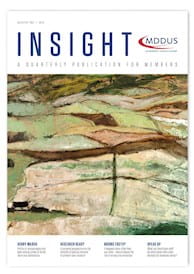
I’M an ST in dermatology and was recently on a walking holiday on the Isle of Skye. My friend is currently being treated for anxiety and low mood and arriving at the hostel she discovered that she had left her medication at home. She suggested rather than waste time going to a local GP I could write her a prescription. Was I right to refuse?
It’s not unusual for friends and family to turn to a doctor they know and seek advice or assistance for a variety of things medical. This can include asking for prescription-only medicines, which puts any doctor on the spot and can cause quite a dilemma. The reasons for such requests can include: not having enough time to see their GP before going on holiday, having run out of or fogotten medication or because they want something they know their own GP is reluctant to prescribe.
So, how best to approach this?
Whilst legally a doctor can prescribe for anyone – that is, the law allows it – the GMC advises caution and provides specific advice. Doctors must be aware that serious or repeated breaches of this guidance can lead to significant sanctions being imposed.
In some circumstances, prescribing for someone close to you may appear to be a fairly trivial matter; however this can cause difficulties in regard to patient safety. Risks arise where you do not have access to someone’s full medical history and in particular their prescribing history. Can you reassure yourself that the prescription is appropriate to best serve the patient’s needs? Will the patient’s GP be made aware of the prescription you provide and the clinical reasons for doing so? Do you have any record of what was prescribed and why?
Remember you have a duty of care to the person for whom you prescribe and you are accountable legally and professionally. In particular there is significant risk if medicines of addiction or potential abuse are prescribed; in some cases there have been allegations of criminal behaviour on the part of the doctor involved.
The GMC is clear in its guidance, Good practice in prescribing and managing medicines and devices, that: “Wherever possible you must avoid prescribing for yourself or anyone with whom you have a close personal relationship”.
Sometimes it appears that the risks are low and prescribing is appropriate and in the patient’s best interests. For these situations the GMC advises:
If you prescribe for yourself or someone close to you, you must:
a. make a clear record at the same time or as soon as possible afterwards. The record should include your relationship to the patient (where relevant) and the reason it was necessary for you to prescribe.
b. tell your own or the patient’s general practitioner (and others treating you or the patient, where relevant) what medicines you have prescribed and any other information necessary for continuing care, unless (in the case of prescribing for somebody close to you) they object.
However, it should always be remembered that your friends and family may not be entirely honest with you about all aspects of their medical history. They may have medical conditions or be taking other medication that they do not want to disclose. All these features add to the difficulty in prescribing to friends and family. They will have a confidential relationship with their own doctor, who is also more objective, and receive appropriate care.
A particular note of caution applies to prescribing controlled medications for someone you know, this is fraught with difficulties. There might be the very rare occasion where this is necessary and the GMC offers specific advice:
Controlled medicines present particular dangers, occasionally associated with drug misuse, addiction and misconduct. You must not prescribe a controlled medicine for yourself or someone close to you unless: a. no other person with the legal right to prescribe is available to assess and prescribe without a delay which would put your, or the patient’s, life or health at risk or cause unacceptable pain or distress, and b. the treatment is immediately necessary to: (i) save a life; (ii) avoid serious deterioration in health; or (iii) alleviate otherwise uncontrollable pain or distress.
It is clear that the guidance is intended to restrict doctors from prescribing for those close to them and a good rule of thumb is to always politely decline. In this way your friends will understand that this is not something you are amenable to and therefore should avoid asking.
On the rare occasion that you are asked to prescribe for a friend and, on balance, feel that the best option is to do so, remember the specific GMC guidance - by adhering to this you should avoid any critical censure.
Dr Gail Gilmartin is medical and risk adviser at MDDUS
This page was correct at the time of publication. Any guidance is intended as general guidance for members only. If you are a member and need specific advice relating to your own circumstances, please contact one of our advisers.
Read more from this issue of Insight

Save this article
Save this article to a list of favourite articles which members can access in their account.
Save to library